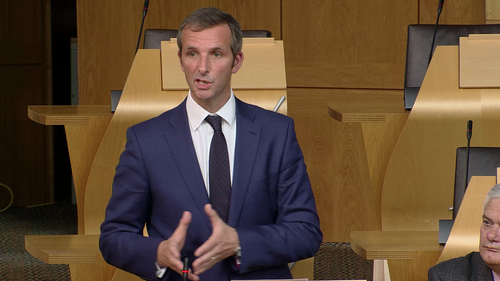McArthur expresses concerns about Highly Protected Marine Areas

Speaking after the closure of the Scottish Government’s consultation on Highly Protected Marine Areas (HPMAs), Orkney MSP Liam McArthur has echoed growing concerns among islanders about the approach being taken and the potential impact in the islands.
Under the Bute House Agreement between the SNP and Greens, ministers announced plans to designate 10% of Scottish waters as HPMAs. This would exclude almost all human activity carried out in these areas, from fishing to infrastructure construction, with even recreational activities subject to monitoring and management.
Earlier this month, Mr McArthur met with representatives of the local fishing sector to hear their concerns about what is proposed and the way in which the government is going about taking forward its plans. It is clear that these are concerns felt in island and coastal communities around Scotland.
Commenting, Mr McArthur said:
“Coastal and island communities rely on the marine environment. It goes without saying that protecting stocks and the biodiversity of our waters is of paramount importance. However, the approach being taken by the Scottish Government to HPMAs appears overly-rigid and likely to do real damage to those communities.
“HPMAs are being considered elsewhere in the UK and across the EU, of course, but nowhere is the plan to introduce them so quickly, indiscriminately and without any proper assessment of the impact, including on the communities most affected. Little wonder that the plans are causing such alarm and anger.
“Orkney’s inshore fishing sector has been at the forefront of efforts to monitor and sustain stocks, building the scientific evidence on which policy-making should be based. They have responded to previous government encouragement to manage resources in a responsible and sustainable fashion. Thanks to the Bute House Agreement, this is being put at risk.
“A third of Scotland’s waters are already designated, with Marine Protected Areas designed to benefit specific species or habitats. The new HPMAs appear to be a one-size-fits-all policy with no distinction made between practices that are environmentally damaging and those that are sustainable.
“As the consultation closes, Ministers must now listen and respond to the concerns being expressed by island and coastal communities. Rather than sticking to an arbitrary and unrealistic timeframe of 2026, the Scottish Government should commit to a more flexible, tailored and proportionate model for HMPAs. Doing the wrong thing for the right reason will come as no comfort if it takes out large swathes of Scotland’s inshore fishing sector.”